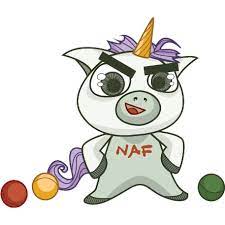Hi everyone. Before we start this week’s topic, check out Memphis Music Initiative’s latest hilarious and catchy music video, “I Hope Like Hell We Get This Grant.”
Crappy Funding Practices (CFP) has been building momentum. Join in the fun on LinkedIn! This is the movement where we call out foundations publicly and by name who engage in practices that waste nonprofits’ time and energy when there are so many societal issues to tackle. Making a grantee write a quarterly report for a $2500 grant? We’re calling you out. Telling grant applicants they can’t spend more than 10% on overhead? We’re calling you out. Making grant applicants use your budget format, which is in Word? We’re calling you out.
Declaring a grant application deadline but then saying you’re only going to review the first 100 submissions? We’re calling you out and likely also bestowing upon you a Ghost Orchid Award for Rare but Super Crappy Funding Practices, which will come with press releases and probably an award ceremony where your team will be invited to dress up in evening formal wear and explain how you came up with such a clueless and heinous decision.
We can only call out stuff we know of, so if you would like to anonymously report a crappy funding practice (including if you work at a foundation and want to report on your workplace), please fill out this form. And to balance things out, we’ll also be highlighting the wonderful foundations that engage in Awesome Funding Practices, so please nominate those too. And apologies, there is a long list of submissions, and the team is trying to call out one or three funders a week at this point, so that each has enough time in the shameful spotlight; thank you for your patience.
This week’s blog post, however, is aimed less at the funders who engage in ineffective and infuriating funding practices and more at the colleagues who read these call-outs and feel the need to defend the status quo. Over the past few days, as the CFP team begins its work in earnest, we called out two foundations, which you can see on the CFP LinkedIn page. While many colleagues responded with righteous anger at the audacity of these funders, there are a few who step in and spout the same boring, predictable responses that’s been used for decades to defend funders’ and donors’ shenanigans.
So, to save us all time, I’m going to list some of the common ones I’ve gotten over the years, below; most I’ve paraphrased, but some are direct quotes. That way, when we encounter these comments in the future, we can just copy and paste our replies, or just paste in the URL to this blog post and type “See number 4” or “See numbers 3, 6, and 8” or whatever:
1. ”It’s not my money. It’s not your money. It’s the funder/donor’s money! So they get to do what they want with it.” If you’re spouting this, you need to have a better analysis of equity and wealth. A lot of wealth, at least in the US, comes from some combination of inequitable means, including slavery, stolen Indigenous land, worker exploitation, environmental degradation, and tax avoidance. Sometimes, it may be indirectly, like someone inherited money from a relative who worked for a company that exploited workers and retired through stock options. The point is, if someone’s wealth is accumulated through inequitable means, then it’s NOT their money. Please read The Whiteness of Wealth and other works on this topic before you continue spewing this nonsense.
2. “What, you expect funders to give out money without doing their due diligence like a bunch of wild animals?!” Due diligence is great, but it can be done without all the time-wasting nonsense that many funders inflict upon nonprofits. For instance, as I’ve said many times now, no funder needs their own unique snowflake grant proposal. Funders can literally just accept grant proposal packages that nonprofits have already prepared for other funders. It’s all the same information. There, the funders fulfilled their due diligence, but it’s just not in a time-consuming snowflake format catered to their whims. No funder needs a snowflake financial or programmatic reports either; they can just accept annual reports and general financial reports. Stop using “due diligence” as an excuse to perpetuate annoying and harmful practices.
3. ”But what you’re complaining about is standard practice! Most or all foundations require this! What’s the issue?” The fact that a crappy practice has become so common that it is the standard IS the issue! “That’s the way it’s always done” has been used throughout history to keep ineffective and inequitable systems in place, such as health insurance being tied to employment in the US. (And also very annoying ones such as the embarrassing gaps in the toilet stalls in public restrooms in the US). Sure, many funders over the years have engaged in so many insipid practices that these practices are taken as standard, or even “best,” practices. But that does not make them OK. We need to stop thinking something is OK because it’s common.
…









